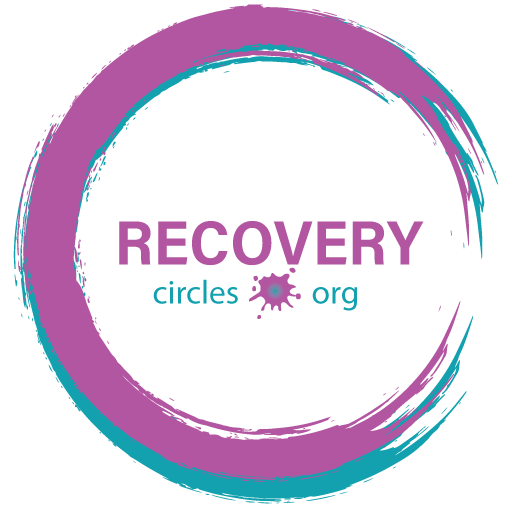Addiction Recovery
Do you need help overcoming addiction? Contact us or keep reading to learn how Sober House Philadelphia can support your journey to recovery with personalized and compassionate care.
You can also call us at (267) 412-3258
Featured In





“
I finally feel like I have a future. These people believed in me when I couldn’t.
– John L.
“
What I found here wasn’t just recovery housing in Philadelphia, it was a group of people who truly cared if I succeeded. They held me accountable and helped me rebuild.
– Tony F.
“
As a single mom, I needed a place I could trust. This affordable sober home in Philadelphia gave me that and more. I’m forever grateful.
– Jasmine T.
See more of our success stories
Addiction is defined as the compulsive use of a substance despite harmful consequences, and it often involves both physical and psychological dependence. Physical dependence occurs when a person needs to consume more of a substance to feel its effects, and withdrawal symptoms emerge when use is stopped. Psychological dependence, on the other hand, includes the emotional and mental struggles that reinforce the addiction. Because addiction affects both the body and mind, trying to recover alone can be incredibly challenging.
At Sober House Philadelphia, we offer comprehensive addiction recovery support tailored to meet your unique needs. If you’re seeking help, we’re here to guide you every step of the way.
You can also call us at (267) 412-3258
What Is Addiction Recovery?
Addiction recovery is a multifaceted process that focuses on restoring both physical and psychological health. It empowers individuals to reclaim their lives and reach their full potential through sustained emotional and physical sobriety. While initial treatment is often sought through rehab or a designated facility, long-term recovery requires ongoing support and active participation in the recovery journey to maintain lasting sobriety and prevent relapse.
A common misconception about recovery is that it ends once a treatment program is completed or total abstinence is achieved. In reality, the risk of relapse is highest within the first 90 days after treatment. This is why ongoing support, structure, and access to multiple recovery resources are essential for individuals to maintain long-term sobriety and truly thrive.
Does Sober Provide Treatment for Addiction?
At Sober House Philadelphia, we design programs that honor each person’s unique path to recovery. Working closely with our trusted partner, The Heights Treatment, we offer a full range of addiction-treatment options that accommodate diverse needs. To reinforce lasting sobriety, we also emphasize the key pillars of community, self-care, life skills, and spirituality.
Our approach is both focused and thorough. Rather than treating only the outward signs of addiction, we dig deeper to understand the underlying issues that fuel it—because real solutions require insight into root causes. Armed with that knowledge, we help clients dismantle personal barriers and build a solid foundation for sober living.
Sustained recovery also depends on a client’s commitment to the process. With guidance from our skilled staff and thoughtfully structured programming, individuals gain the motivation and confidence they need to embrace—and maintain—their new, healthier way of life.

Sober Livings

Outpatient Treatments

Individualized Intensive Program

Sober Companions
Can Addiction Be Treated Successfully?
Much like diabetes or cancer, addiction is a chronic and progressive disease—one that, if left untreated, can have fatal consequences. While it may not be curable in the traditional sense, addiction is highly treatable and manageable. At Sober House Philadelphia, we firmly believe in the possibility of recovery—our work is grounded in the success stories that prove it every day.
That said, recovery isn’t always a straight path. Many individuals experience relapse, and sadly, some lose hope and never return to treatment. Unlike other chronic conditions where relapse triggers immediate and compassionate medical intervention, society often shames those who struggle with addiction, making them feel like they’ve failed.
But relapse is not a failure—it’s a part of the journey for many. At Sober House Philadelphia, we understand that. We know that humans make mistakes, and we respond to relapse with support, not judgment. Real recovery takes a thoughtful, individualized treatment plan and, most importantly, a client who’s engaged and committed. When that connection is strong, the chances of lasting sobriety grow dramatically.
Cities We Serve
What Are the Signs and Symptoms of Addiction?
While addiction affects individuals differently, there are general signs and symptoms that may indicate active addiction. These can manifest through a range of physical, psychological, and social changes—some subtle, others more severe. An individual may experience many of these signs or just a few, depending on the substance involved and the progression of their addiction.
Physical symptoms often emerge as the body’s systems are disrupted by prolonged substance use. Common physical signs of addiction include:
Changes in appearance
Insomnia or increased need for sleep
Increased drug tolerance
Withdrawal symptoms when not using
Changes in appetite
Diseases spurred from using drugs (i.e. liver problems, respiratory illness, vascular disease, etc.)
Social symptoms manifest as changes in the ways that addicted individuals interact with their peers. Social symptoms of addiction include:
Decreased interest in hobbies
Financial difficulties
Avoiding detection by having stashes of the addictive substance in various places
Isolation
Denial of addiction
Using alone or in secret in order to hide it from others
Legal issues
Psychological symptoms can be the most challenging addiction symptoms to identify. Psychological symptoms include:
Unable to stop using despite previous attempts
Using substance as a coping mechanism when dealing with problems
Engaging in risky behavior
Becoming obsessed with the drug
Ignoring/denying health problems related to using, etc.
How Do Behavioral Therapies Treat Drug Addiction?
There are several therapeutic modalities used to support clients in their addiction recovery, and having a range of options is important—what works well for one individual may not be as effective for another.
Cognitive Behavioral Therapy (CBT) is one of the most widely used approaches, focusing on identifying and reframing negative thoughts and beliefs that influence behavior. In addiction treatment, CBT is particularly helpful for relapse prevention, as it equips clients with tools to recognize and change the thought patterns that lead to substance use.
At Sober House Philadelphia, while CBT and Dialectical Behavior Therapy (DBT) are among our most commonly used treatments, we also incorporate other therapeutic methods based on a client’s individual needs. All our therapy approaches share a common goal: to help rewire the brain and reshape perception in ways that support long-term recovery.
DBT, in particular, is highly effective for individuals facing co-occurring mental health challenges. It focuses on improving emotional regulation, stress management, interpersonal effectiveness, and the ability to cope with distress—making it especially valuable for clients who need support navigating complex emotional landscapes while pursuing sobriety.
Can Someone Overcome Their Addiction?
Developing an addiction does not reflect a person’s strength or value—it is not a moral failing. In most cases, willpower alone is not enough to overcome addiction and sustain long-term recovery.
While the road to sobriety can feel overwhelming, it is absolutely within reach for those who are ready to pursue it. Recovery requires a deep level of commitment, honesty, and personal willingness. With strong support and consistent motivation, the likelihood of success increases greatly. It’s important to understand that recovery is a gradual process. Some individuals may move through it more quickly than others, but true, lasting sobriety takes time, patience, and continued effort. As many say, recovery is a marathon, not a sprint.
At Sober House Philadelphia, we meet each client exactly where they are on their journey. Whether they’re just beginning or working through setbacks, our mission is to provide unwavering support and encouragement. Our goal is to walk alongside our clients as they build a foundation for a more joyful, stable, and fulfilling life.
Is There Addiction Recovery Treatment Near Me?
Sober House Philadelphia is committed to providing high-quality addiction treatment services tailored to each individual’s needs. If you or someone you care about is considering treatment, we encourage you to reach out and explore your options with us. We prioritize our clients’ long-term success and well-being, and our team is fully prepared to deliver the level of care required to support lasting recovery and sobriety.
Call our recovery specialists at Sober House Philadelphia today at (267) 412-3258 or fill out our contact form to learn how joining our Philadelphia sober living community can help you reclaim your life. Whether you’re seeking clean and sober housing, structured transitional support, or simply someone to talk to — we’re here for you.




